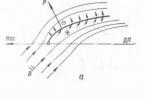When applying to the Russian authorities for a residence permit, a foreigner must decide in what status he wants to be in our country. Such possibilities are a residence permit: a resident or a non-resident, while the right of choice remains with the foreigner.
What gives a residence permit to a foreigner
Obtaining a residence permit in Russian Federation grants its owner a number of rights. These include the following.
- The ability to legally stay in our country for the entire period while the residence permit is valid. This document is issued for a period of up to five years. If after that there is a need for further stay on the territory of the Russian Federation, then it can be extended by submitting the necessary documents on time. For those who for some reason do not consider it necessary to obtain Russian citizenship, having a residence permit is the most convenient way in order to live in our country for as long as necessary.
- The possibility of unimpeded movement within the territory of the country, without asking for permission from the authorities in charge of migration issues. At the same time, it should only be remembered that the holder of a residence permit, like any citizen of the Russian Federation, is obliged to register both at the place of his permanent residence and upon arrival in another region. He must do this within the period stipulated by law, since otherwise, he will face administrative punishment, up to and including expulsion from the country.
- The ability to leave the borders of our country and return to Russia without issuing any additional documents for this. The number of entries and exits is not limited.
- Unhindered employment that does not require the provision of any additional documents, for example, that the person is sufficiently fluent in Russian.
- The possibility of obtaining medical care in the amount in which it is provided to citizens of the Russian Federation.
- The right to educate their children in Russian schools and universities.
- After working out a certain length of service and reaching retirement age, be able to draw up and receive a pension.
- The possibility of obtaining a loan by choosing one of the Russian banks for this purpose.
Finally, the presence of a residence permit opens up opportunities for its holder to obtain Russian citizenship, which can be issued in the manner prescribed by law. Obtaining a residence permit does not mean that its holder must renounce the citizenship of his country, it remains with him.
Consideration of documents for obtaining a residence permit takes up to six months, after which the person applying for this is given a positive or negative answer. In certain cases provided for migration legislation, documents are reviewed faster.
Differences between a resident and a non-resident
A completely justified question from visiting residents: "If there is a residence permit, is it a resident or a non-resident." To answer it, it is necessary to delve into the terminology of the legislation and identify what requirements this or that citizen meets.
The essence of the concept of "resident"
A resident is a natural or legal person who has registered in a certain country, while fully complying with the established legislation.
Usually, a similar term is used when referring to the rights and obligations of individuals in economic and tax relations. In other countries, the concept applies exclusively to foreigners (both individuals and companies) who have all the rights and obligations within the state.
If you rely on the legislation of the Russian Federation, then you can display the following confirmations of residency:
- These are individuals who have Russian citizenship. However, this list excludes a citizen who has been living in a foreign country for 12 months or more, while he has an officially issued residence permit. They also include persons residing in foreign countries on the basis of a work or study visa, the term of which is at least 12 months.
- A person permanently resides on the territory of the Russian Federation, having a residence permit, while he does not have to have the citizenship of any state.
- All legal entities registered under the laws of the Russian state.
- Branches and representative offices located outside of Russia, but registered under the terms of the legislation of the Russian Federation.
- Diplomatic organizations and consulates of Russia that are located outside the borders. Permanent missions of the Russian Federation to interstate or intergovernmental organizations.
- Russian Federation, all constituent entities and municipalities.
You can become a resident only if the citizen meets all the conditions described above.
Definition of non-resident
A non-resident is a legal or individual who does not have a stable place of residence under the terms of the law. That is, it turns out that the country in which he is now located is for him permanent place residence is not. According to the legislative acts of the Russian Federation, a person who has stayed in the country for less than 183 days in one calendar year cannot be called a resident.
In this situation, circumstances should not be confused with citizenship of a citizen. If a person has the citizenship of one state, but due to certain circumstances he resides on a permanent basis in another, then he will be treated as a resident of the country in which he resides for permanent residence, and not where he has an indigenate.
Attention! However, it should be understood that the two concepts of "resident" and "non-resident" are connected precisely by tax legal relations. It is exactly what category a citizen belongs to that will affect the payment of taxes. It turns out that in the state of residence, which is not a permanent place of residence (non-residents), only those incomes whose sources are located in this state will be taxed, but the resident will pay all taxes on income received.
Non-residents can also include legal entities, enterprises and companies that do not have a legal status. To determine the relationship of a particular corporation to a particular group, you should check its compliance with the following criteria:
- In which country was this organization founded?
- What legislation does it follow?
- In which state is it registered?
- Where is the head office located.
![]()
Non-residents include international companies that operate within a certain republic, while representative offices or branches must also be located in this country.
Rights and obligations of non-residents
In our country, for companies, the government has established clear rules that are aimed at the registration and operation of bank accounts with a ruble balance. According to these data, a branch of a bank that is a non-resident does not have the right to draw up accounts in rubles for a resident of our state.
Of course, each country puts forward its own rules regarding non-residents, the UK is a prime example. According to their legislation, non-residents include citizens working abroad under a contract of 12 months or more. At the same time, he was at home for no more than 3 months during this period. It is thanks to this interpretation that a person will be completely exempt from British taxes.
After considering the issue, we came to the following conclusion:
To determine the tax status of an individual, it is necessary to sum up the number of days actually spent by him in the territory of the Russian Federation over the previous 12 months. At the same time, days spent outside the Russian Federation, regardless of the purpose of the departure, are not taken into account, except for cases expressly provided for by the Tax Code of the Russian Federation (short-term (less than six months) treatment or training).
Rationale for the conclusion:
In accordance with paragraph 1 of Art. 207 of the Tax Code of the Russian Federation, individuals who are tax residents of the Russian Federation, as well as individuals who receive income from sources in the Russian Federation and are not tax residents of the Russian Federation, are recognized as payers of personal income tax.
At the same time, the size of the personal income tax rate at which his income will be taxed depends on the status of the taxpayer (resident or non-resident of the Russian Federation). If an individual is recognized as a tax resident of the Russian Federation, the personal income tax rate is set at 13%, if not recognized, at 30% (Article 224 of the Tax Code of the Russian Federation).
In paragraph 2 of Art. 207 of the Tax Code of the Russian Federation, it is determined that individuals who actually stay in the Russian Federation for at least 183 calendar days within 12 consecutive months are recognized as tax residents. At the same time, the period of stay of an individual in the Russian Federation is not interrupted for periods of his departure outside the country for short-term (less than six months) treatment or training.
When determining the tax status of a foreign citizen, 183 days of stay in the Russian Federation, upon reaching which an individual will be recognized as a tax resident of the Russian Federation, are calculated by summing up all calendar days when an individual was in the territory of the Russian Federation (within 12 consecutive months). Days of stay outside the Russian Federation, regardless of the purpose of departure, are not taken into account, except for cases expressly provided for by the Tax Code of the Russian Federation (short-term (less than six months) treatment or education). These clarifications are presented in letters of the Ministry of Finance of Russia dated 08.10.2012 N 03-04-05 / 6-1155, dated 20.12.2011 N 03-04-06 / 6-350, dated 05.26.2011 N 03-04-06 / 6- 123, dated April 25, 2011 N 03-04-05 / 6-293, Federal Tax Service of Russia for Moscow dated July 24, 2009 N 20-15 / 3 / 076408.
Thus, to determine the tax status of a foreign citizen, it is necessary to take into account only the period of his actual location on the territory of the Russian Federation, when determining this period, all days when an individual was on the territory of the Russian Federation, including the days of arrival and departure, are taken into account (see, for example, letters of the Ministry of Finance of Russia dated 20.04.2012 N 03-04-05 / 6-534, dated March 21, 2011 N 03-04-05 / 6-157). At the same time, when determining the status, the 12-month period that began in one tax period (calendar year) and continues in another tax period is taken into account (letters of the Ministry of Finance of Russia dated April 26, 2012 N 03-04-06 / 6-123, dated February 21, 2012 N 03-04-05 / 6-206).
In accordance with paragraphs. 1 p. 1 art. 223 of the Tax Code of the Russian Federation, when receiving income in cash, the date of actual receipt of income is determined as the day of payment of income, including the transfer of income to the taxpayer's accounts in banks or, on his behalf, to the accounts of third parties. Therefore, it is at this point that the tax status of the employee should be determined.
If an individual stays in the Russian Federation for less than 183 days during the 12 months preceding the date of receipt of income, such a person will not be recognized as a tax resident of the Russian Federation, and his income from sources in the Russian Federation is subject to taxation at a rate of 30% (letter of the Ministry of Finance of Russia dated 05.04. 2012 N 03-04-05/6-444).
Please note that the norms of the Tax Code of the Russian Federation do not establish a list of documents on the basis of which the period of stay can be determined foreign person in Russia, therefore, any documents certifying the actual number of days of stay in the Russian Federation can be accepted as evidence (letter of the Ministry of Finance of Russia of October 25, 2004 N 03-05-01-04 / 56, resolution of the Federal Antimonopoly Service of the Moscow District of June 2, 2006 N KA-A40 /4842-06), for example, copies of air and railway tickets, documents on registration of a foreigner at the place of stay or place of residence, etc. In the opinion of the regulatory authorities, documents confirming the actual presence of individuals on the territory of the Russian Federation may also be copies of a passport with border control marks on crossing the border, receipts for hotel accommodation and other documents drawn up in the manner prescribed by the legislation of the Russian Federation, on the basis of which it is possible to establish the duration of the actual stay of an individual in the Russian Federation (letters of the Ministry of Finance of Russia dated September 28, 2011 N 03-04-06 / 6-240, dated May 16, 2011 N 03-04-06 / 6-110, the Federal Tax Service of Russia dated September 23, 2008 N 3-5-03/ [email protected]).
Prepared answer:
Legal Consulting Service Expert GARANT
Vakhromova Natalia
Response quality control:
Reviewer of the Legal Consulting Service GARANT
Zolotykh Maxim
The material was prepared on the basis of an individual written consultation provided as part of the Legal Consulting service.
Resident is legal or physical a person registered in a given country, which is fully covered by the national.
non-resident- This legal, natural person operating in one state, but permanently registered and residing in another.
It can also be organizations and organizations that are not legal entities. persons created in accordance with the laws of foreign states, or foreign diplomatic and other official representations located in the country, as well as international organizations, their branches and representative offices.
As a rule, the term is used in relation to the rights and obligations of persons in financial and tax legal relations.
In individual states residents name only foreign citizens and foreign organizations that have full rights and obligations within their country of residence.
Residents of Russia include:
Individuals who are citizens Russia, with the exception of citizens Russia recognized as permanently residing in a foreign state in accordance with the legislation of that state;
permanently residing in Russia on the basis of a residence permit provided for by the legislation of Russia, foreign citizens and stateless persons;
Legal entities created in accordance with the legislation of Russia;
branches, representative offices and other subdivisions located outside the territory of Russia legal persons created in accordance with the legislation of Russia;
diplomatic missions, consular offices of Russia and other official representations of Russia located outside the territory of Russia, as well as permanent missions of Russia at interstate or intergovernmental organizations;
itself, subjects of Russia, Russian municipalities.

Non-residents include:
Individuals permanently residing outside the Russian Federation, incl. temporarily located on its territory;
Legal entities established in accordance with the laws of foreign states and located outside the Russian Federation;
Enterprises and organizations that are not legal entities, created in accordance with the legislation of foreign states and located outside the Russian Federation;
diplomatic and other representations located in the Russian Federation;
branches and representative offices of non-residents located in the Russian Federation.

An economic entity is a resident of the country where its main place of residence is located, regardless of its citizenship. Residency companies is determined by the place of registration and location, and not by the place of operations.
Sources
Wikipedia - The Free Encyclopedia, WikiPedia
mabico.com - Mabico
inventech.ru - Library
Encyclopedia of the investor. 2013 .
See what "Resident and non-resident" is in other dictionaries:
NON-RESIDENT- [English] non resident this place] jur. 1) a legal entity registered in another country; 2) an individual permanently residing in another country; the regime of taxation and legislative regulation for n. ... ... Dictionary of foreign words of the Russian language
TAX RESIDENT- (NON-RESIDENT) (English tax resident (non resident)) - a characteristic of the subject of taxation, determined by the principle of permanent residence (residence). Taxpayers are divided into persons with permanent residence in ... ...
RESIDENTS AND NON-RESIDENTS- (English residents and non residents) - individuals and legal entities as business entities in a specific legal field and economic space (country) with certain rights and obligations. The concepts of R. and N. are introduced by the Law of the Russian Federation “On ... ... Financial and Credit Encyclopedic Dictionary
Armenia- This term has other meanings, see Armenia (meanings). Republic of Armenia Հայաստանի Հանրապետություն ... Wikipedia
- (Money supply) Money supply is cash in circulation and non-cash funds in bank accounts The concept of money supply: money supply aggregates M0, M1, M2, M3, M4, its liquidity, cash and non-cash ... ... Encyclopedia of the investor
.am- This term has other meanings, see Am. .am Introduction August 26, 1994 Domain type ccTLD Status current Registrar AMNIC Organizer ... Wikipedia
List of diplomatic missions of the Saharan Arab Democratic Republic- ... Wikipedia
List of diplomatic missions of the State of Palestine
Diplomatic missions of the State of Palestine- The State of Palestine is gradually expanding its network of relationships with the international community. In many of the countries that recognize the independence of the State of Palestine, embassies or other diplomatic missions have already been opened. At the same time ... ... Wikipedia
International legal status of the State of Palestine- This article is in special treatment edit as it refers to articles governed by the mediation of the Middle East conflict. It is recommended that you read the talk page before committing kickbacks, as well as the rules ... ... Wikipedia




